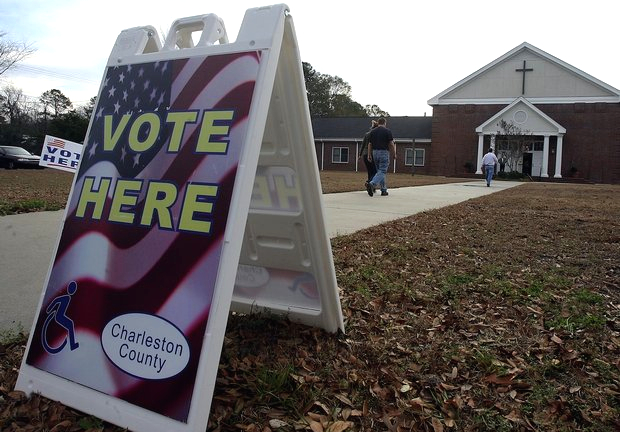Last month, RD’s Diane Winston commented on the overhyping of a recent Pew survey suggesting that Americans have a “desire for more religion in politics and public life.” This week, in a commentary at Religion News Service, Republican Party operative Chad Connelly hypes the survey some more. He writes:
According to the survey, 49 percent of all Americans said that they support churches and other houses of worship expressing views on political and social questions — up from 40 percent in 2012.
An analysis of the Pew study suggests that its findings indicate “a reversal of a decline in support for church intervention” in politics.
Connelly, the “director of faith engagement for the Republican National Committee,” attributes this quote to “an analysis” of the study, which leaves the reader to assume that it came from the study’s authors themselves, and not from the Wall St. Journal, as seems to be the case. While the WSJ analysis does quote a Pew researcher making that point, I can’t help wondering why Connelly failed to provide proper attribution. Possibly because that same analysis notes that the results “still [leave] the nation divided,” or that they indicate a split within the Republican Party. In any case, he goes on:
Among Republicans, the numbers are even more dramatic: 59 percent said that they believe that churches should speak out on the political issues of the day; 53 percent don’t believe that political leaders spend enough time talking about their faith; and 72 percent believe that it is important that members of Congress have strong religious beliefs.
Anyone skeptical of Winston’s argument need look no further than this to see how “overhyping” works in practice. These numbers sound impressive until you recall that only about a quarter of the U.S. population is registered with the Republican Party. With that context, the “dramatic” numbers should read like this: 59 percent of 25 percent of Americans said… 53 percent of 25 percent… and 72 percent of 25 percent… etc.
By my calculation, these figures equate to 14.75%, 13.25%, and 18% of the U.S. population, respectively.
“So what’s causing this growing desire for faith in the public arena?” Connelly asks. “It’s a clear case of an increasing backlash against what many pro-faith Americans see as a growing assault on religious liberty and the rights of conscience.”
Let’s overlook the cloying construction of a “pro-faith” constituency for a moment, and observe instead that the Americans who fit this bill tend to be influenced by opinion-makers like Chad Connelly, who are in the business of manufacturing discontent and then gleefully reporting on it. The Pew findings actually make a lot of sense when you recall that, since 2012, GOP talking points have focused almost exclusively on the “growing assault on religious liberty and the rights of conscience.” That Republican citizens now repeat this claim to Pew researchers is not exactly news.
It is notoriously difficult to measure the effectiveness of an argument, especially given how many mitigating factors are always at work when one is made, but the Pew survey does suggest a relationship between the opinion shifts it measures and the public arguments that have worked diligently to shift opinion.
Consider, for instance, this finding: “Analysis also shows that growing support for religion in politics is concentrated among those who think religion has a positive impact on society. And the desire for religion in public life is much more evident among Republicans and those who lean toward the GOP than among Democrats and Democratic leaners.”
And then there’s this: “The new poll also finds that fully half (50%) of the public now considers homosexuality a sin, up from 45% a year ago. And nearly half of U.S. adults think that businesses like caterers and florists should be allowed to reject same-sex couples as customers if the businesses have religious objections to serving those couples.”
So one moral of this story is that Republicans and Republican leaners are likely to declare sympathy for Republican talking points. Another is that the plight of conservative Christian caterers and florists has traction as one of those points.
Connelly goes on to cite the Hobby Lobby case, abortion coverage by the Affordable Care Act, and the recent Houston subpoenas as examples of anti-faith atrocity during the Obama administration, each carefully selected for partisan utility, and each highly disputable even among people of faith. “Sadly, these are not isolated instances of government attacking religious practitioners,” he laments. “The list goes on and on.”
With primary examples like these, one suspects that Connelly’s list is actually pretty short, and carefully limited to matters of concern for a very specific group of citizens. In his telling, “religious” is happily conflated with “pro-faith conservative,” which in turn stands in for “white evangelical Protestant Republican.”




